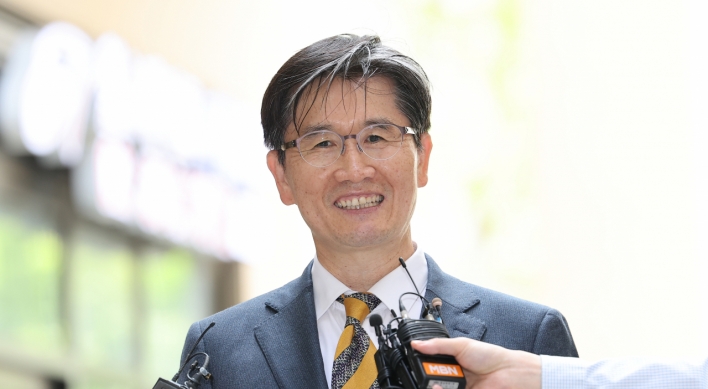Collective lending for home buying falls after government restrictions
By 임정요Published : Nov. 14, 2016 - 10:54
Apartment supply hit a record high this year in the month of October, but the sum of "collective lending," a system in which financial institutions lend money to home buyers in groups, fell as the government took the reins to control spiking household debt, the latest tally showed Monday.
Figures collected and released by financial authorities said the country's four leading commercial banks approved 2.53 trillion won ($2.17 billion) in collective loans in October, the second-lowest sum this year. The trend ran opposite of apartment supply in the month, 40,019 units, which was the highest for the year.
The government on Aug. 25 announced a set of actions intended to control the soaring household debt that it blamed partly on speculative property investments made with loans. Policymakers have been struggling to prop up the sagging real estate sector by encouraging people to buy homes, but at the same time trying to keep burgeoning household debt under control to prevent it from becoming a serious threat to the economy.
One of the actions was to make banks more meticulous in deliberating and approving loans that are extended collectively to home buyers. Such loans are arranged by builders for buyers who have to pay lump sums in installments while the homes are being constructed. Because lenders review such loan applications by group, the approval processes are often more lax than individual loans.
After government tightening of loan regulations on Aug. 25, banks are now held more liable for collective loans that become unclaimable.
The pace of increase in collective loans also fell in October, figures showed. In the month, the remaining sum of collective lending by six commercial banks totaled 111.31 trillion won, up 760 billion won from the previous month compared to the over 1 trillion won monthly increase in the first half of this year.
Collective loans made by secondary lenders were also falling, according to the figures. The National Credit Union Federation of Korea, for example, approved only one such loan each in August and September after raising the bar for applicants and requiring a high selling rate of the planned apartment. The Korean Federation of Community Credit Cooperatives and the National Federation of Fisheries Cooperatives have both said they will draw up new guidelines to handle collective lending by adding more steps to the approval process.
"Prospects for the real estate market aren't all that bright, and home supply is likely to decrease," a finance official said.
"The approval rate of collective lending is consequently likely to fall." (Yonhap)









![[Weekender] How DDP emerged as an icon of Seoul](http://res.heraldm.com/phpwas/restmb_idxmake.php?idx=644&simg=/content/image/2024/04/25/20240425050915_0.jpg&u=)

![[Today’s K-pop] NewJeans' single teasers release amid intrigue](http://res.heraldm.com/phpwas/restmb_idxmake.php?idx=644&simg=/content/image/2024/04/26/20240426050575_0.jpg&u=)





![[Herald Interview] Mistakes turn into blessings in street performance, director says](http://res.heraldm.com/phpwas/restmb_idxmake.php?idx=652&simg=/content/image/2024/04/28/20240428050150_0.jpg&u=)
